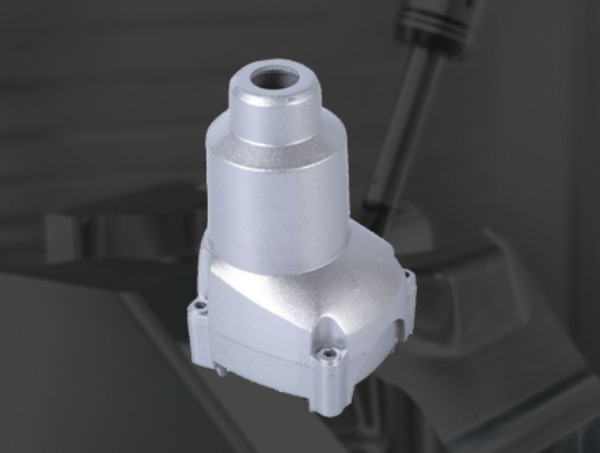Introduction:
In the fast-paced world of manufacturing, finding the right materials for efficient production processes is crucial. Aluminum casting parts have emerged as a game-changer, with their exceptional properties and widespread applications. This article aims to explore the various advantages of
aluminum casting parts and their potential to revolutionize the manufacturing industry.
The Versatility of Aluminum Casting Parts
Aluminum casting parts offer a remarkable level of versatility, making them suitable for a wide range of applications. Whether it's automotive components, aerospace parts, or household appliances, aluminum casting parts can be molded into various intricate shapes, sizes, and designs. This flexibility provides manufacturers with endless possibilities, enabling them to meet the diverse needs of different industries.
Lightweight and High Strength
One of the primary advantages of aluminum casting parts is their excellent strength-to-weight ratio. Despite being lightweight, aluminum casting parts exhibit remarkable strength properties, making them ideal for applications where both weight and structural integrity are crucial. Industries such as automotive and aerospace heavily rely on aluminum casting parts to achieve fuel efficiency, reduce emissions, and enhance overall performance.
Superior Corrosion Resistance
Aluminum is inherently corrosion-resistant, making aluminum casting parts highly durable in harsh environments. This property significantly extends the lifespan of products, reducing maintenance costs and increasing customer satisfaction. From marine equipment to construction materials, aluminum casting parts offer long-term reliability, even in challenging conditions.
Excellent Thermal Conductivity
Another remarkable property of aluminum casting parts is their outstanding thermal conductivity. This makes them highly desirable for heat transfer applications, such as in electrical components, engine parts, and cooling systems. The efficient dissipation of heat helps improve the performance and longevity of these products, ensuring optimal functionality.
Cost-Effectiveness
Aluminum casting parts are not only versatile and durable but also cost-effective. The abundance of aluminum as a raw material, coupled with the efficiency of the casting process, makes the production of aluminum casting parts relatively low-cost compared to other materials like steel or titanium. This cost advantage allows manufacturers to produce high-quality products at a competitive price, benefiting both businesses and end-users.
Seamless Complex Designs
With the casting process, aluminum can be easily formed into complex shapes and designs, providing designers and engineers with limitless possibilities. This eliminates the need for multiple components and simplifies assembly processes, reducing overall production time and costs. Additionally, the ability to create intricate designs enhances the aesthetics of products, appealing to consumers.
Sustainability and Recyclability
In today's environmentally conscious world, sustainability is a key consideration. Aluminum casting parts offer a sustainable solution, as aluminum is widely recyclable without compromising its quality. Recycling aluminum requires significantly less energy compared to primary production, making aluminum casting parts a greener choice. The ability to recycle and reuse aluminum also contributes to reducing waste and conserving valuable resources.
Wide Availability
Aluminum is one of the most abundant elements on Earth, ensuring a stable and reliable supply chain for aluminum casting parts. This availability eliminates the risk of material shortages, ensuring consistent production and timely delivery of products. Manufacturers can rely on aluminum casting parts to meet the demands of various industries without worrying about potential supply chain disruptions.
Enhanced Performance and Efficiency
Thanks to its exceptional properties, aluminum casting parts can significantly enhance product performance and efficiency. From automotive engines to industrial machinery, the lightweight and durable nature of aluminum casting parts contribute to improved speed, reduced energy consumption, and optimized functionality. This, in turn, benefits end-users through superior product performance, durability, and reliability.
Conclusion
The advantages of aluminum casting parts are clear and compelling. With their versatility, strength, corrosion resistance, thermal conductivity, cost-effectiveness, and recyclability, aluminum casting parts offer a plethora of benefits to the manufacturing industry. As the demand for lightweight, durable, and eco-friendly materials continues to rise, aluminum casting parts are likely to play a crucial role in shaping the future of manufacturing. So, can aluminum casting parts revolutionize the manufacturing industry? The answer looks promising.








